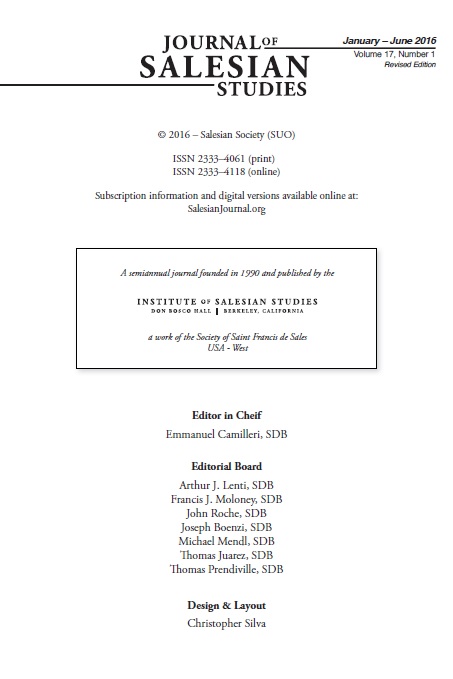This study of Don Bosco in a perspective of organizational virtues is intended to be in a circular hermeneutic relation with the present period of transformation in which the Salesians of Don Bosco find themselves.
From the 1970’s to the present day, the organizational methodology of the Salesians has been substantially influenced by the Management by Objectives model (MBO), which had been inspiring the curriculum design theories of the sixties.
Among the education theorists who have had the greatest impact on the formulation of the Salesian Educative and Pastoral Project, we find Ralph Tyler, Leslie Briggs, Robert Gagné, Robert Mager, Hilda Taba and, above all, Lawrence Stenhouse, who influenced Juan Edmundo Vecchi the most.
It is to the latter, who was the Counsellor for Youth Ministry in the Congregation from 1978 to 1990 that we owe the main ideas leading to educative-pastoral planning.
Contents:
- The limits of planning by objectives and how to go beyond
- Consecrated life and managerial-organizational research
- Leadership-management lived and embodied in the various phases of Don Bosco’s life
- The various “worlds” in the life of Don Bosco
- Don Bosco’s childhood and formation (1815-1841)
- Encounter with the reality of the young in Turin (1841-1846)
- Development of the Oratory and the Adjoined House (1846-1863)
- Collegialization, Foundations and Missions (1863-1888)
- The Preventive System and the dual concept of leadership – management
- Conclusion: the synergy between leadership and management as seen in Don Bosco
Reference time period: 1978 – 1990
M. Vojtáš, Don Bosco: a living harmony of leadership and management qualities,
Trad. di T. Juarez, in «Journal of Salesian Sudies» 17 (2016) 1, 43-84.
Reference institution:
Institute of Salesian Studies
